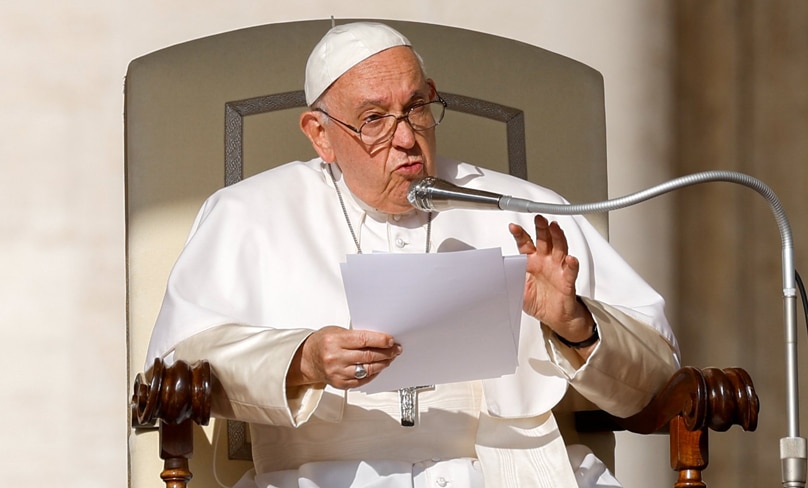
Dear Father, I have a Protestant friend who can’t accept the Catholic Church’s teaching on the primacy of a Pope, who has jurisdiction over the whole Church. How can I explain this to him?
This is an important point of difference between Catholics and Protestants and it is very important to understand why in the Catholic Church we have a Pope, with power over the whole Church. As usual, when dialoguing with Protestants, a good approach is to use the one source of Revelation they accept: Sacred Scripture. And Sacred Scripture is very clear on the matter. Let us examine some of the texts.
First, Jesus Christ promised St Peter authority over the whole Church: “And I tell you, you are Peter, and on this rock I will build my Church, and the powers of death shall not prevail against it. I will give you the keys of the kingdom of heaven, and whatever you bind on earth shall be bound in heaven and whatever you loose on earth shall be loosed in heaven (Mt 16:18‑19). These three images – rock, keys, and binding and loosing – convey the idea of supreme authority over the Church.
After his resurrection, Christ conferred the primacy on Peter. Earlier he had told the apostles that he himself was the good shepherd of the flock (cf. Jn 10:14-16). But now he made Peter the shepherd. In answer to Peter’s three-fold profession of love, Jesus said, “Feed my lambs”, “Tend my sheep” and “Feed my sheep” (Jn 21:15-17). To feed the sheep, to tend them, is to be in charge of them, to look after them. In the Church, it is to pastor the flock of the Church.
After Christ’s Ascension into heaven, Peter exercised his primacy from the very beginning. One of his first acts was to call for a process to choose a successor to Judas. Peter’s authority was respected by the other apostles and by the others in the group of 120 people. They followed his suggestion and nominated two men, from whom Matthias was finally chosen (cf. Acts 1:15-20).
Then, on the day of Pentecost, it was Peter who addressed the multitudes gathered in Jerusalem (cf. Acts 2:14 ff). St Luke records that after Peter had spoken, the people “were cut to the heart, and said to Peter and the rest of the apostles, ‘Brethren, what shall we do?’ And Peter said to them, ‘Repent, and be baptised every one of you in the name of Jesus Christ for the forgiveness of your sins’… So those who received his word were baptised, and there were added that day about three thousand souls.” (Acts 2:37-41). Again, the authority of Peter was recognised by the people.
Sometime later it was Peter who, having received a vision from God showing him that no food was to be regarded henceforth as unclean, declared that Gentiles too were welcome in the Church. In the house of the Roman centurion Cornelius in Caesarea Maritima, he said: “Truly I perceive that God shows no partiality, but in every nation any one who fears him and does what is right is acceptable to him” (Acts 10:34-35). The Holy Spirit then came down on Cornelius and the others with him, moving them to speak in tongues, and Peter proceeded to baptise them (cf. Acts 10:1-48).
When Peter returned to Jerusalem, some Jewish converts of the circumcision party criticised him for eating with the uncircumcised Cornelius and his household. But Peter explained the vision he had seen, and St Luke comments on what happened: “When they heard this they were silenced. And they glorified God, saying, ‘Then to the Gentiles also God has granted repentance unto life’” (Acts 11:18). Once again, Peter’s authority was accepted.
Another important manifestation of Peter’s authority came in the Council of Jerusalem, when the leaders of the Church were deciding whether Gentile converts needed to be circumcised. After discussion among the apostles and elders, Peter rose and stated that the Gentiles were welcome in the Church without having to obey the law of Moses: “But we believe that we shall be saved through the grace of the Lord Jesus, just as they will” (Acts 15:11). James, the leader of the Church in Jerusalem, then suggested they should follow the advice of Peter, and this they did.
There can be no doubt from the Scriptures that Christ gave Peter primacy over the Church and that his authority was accepted by the apostles and elders.
